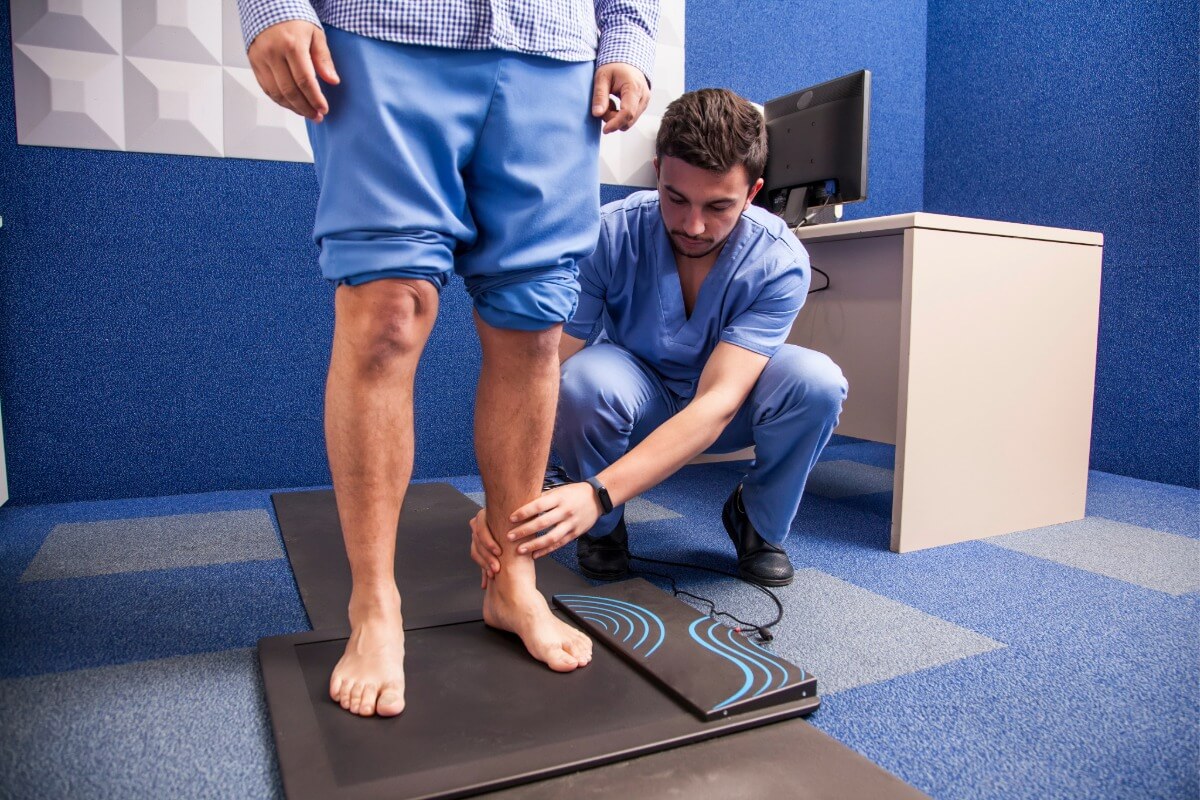How Diabetes Affects Your Feet and When to See a Podiatrist

Diabetes is a chronic condition that affects millions of people worldwide. While much attention is given to managing blood sugar levels, it's equally important to understand how diabetes can impact foot health. High blood sugar levels can lead to nerve damage and poor circulation, increasing the risk of foot complications. At Diablo Foot & Ankle, our board-certified podiatrists in Walnut Creek and Antioch, CA, specialize in diabetic foot care, helping patients prevent and manage foot-related issues.
Why Foot Health Matters for Diabetics
Diabetes is a chronic condition that affects how your body processes blood sugar (glucose). Over time, high blood sugar levels can lead to serious complications, particularly in the feet. Two primary issues that arise are diabetic neuropathy and peripheral arterial disease (PAD).
Diabetic Neuropathy: This condition involves nerve damage caused by prolonged high blood sugar levels. It often leads to loss of sensation in the feet, making it difficult to feel pain, heat, or cold. As a result, injuries or sores may go unnoticed and untreated, increasing the risk of infections.
Peripheral Arterial Disease (PAD): PAD occurs when blood vessels narrow or become blocked, reducing blood flow to the limbs. In diabetics, this can slow down the healing process for cuts or sores and increase the risk of infections and ulcers.
The combination of neuropathy and PAD can lead to severe complications, including foot ulcers, infections, and even amputations. According to the Centers for Disease Control and Prevention (CDC), about 15% of people with diabetes will develop a foot ulcer, and approximately 14-24% of those with foot ulcers will require an amputation.
Regular foot care and monitoring are essential for individuals with diabetes. This includes daily inspections for cuts or sores, proper hygiene, wearing appropriate footwear, and regular check-ups with a podiatrist. Early detection and treatment of foot problems can prevent complications and improve quality of life.
Common Diabetic Foot Problems
People with diabetes are at higher risk for several foot problems, including:
- Foot Ulcers: Open sores that occur due to pressure points or injuries. They can become infected and are slow to heal.
- Infections: Cuts or blisters can become infected, leading to serious complications.
- Calluses and Corns: Thickened skin areas that can break down and become ulcers.
- Dry Skin: Can lead to cracks and openings in the skin, increasing infection risk.
- Foot Deformities: Conditions like hammertoes or Charcot foot, where bones weaken and change shape, leading to instability.
Charcot foot is a particularly severe complication where the bones in the foot weaken and fracture, leading to deformity. Early signs include swelling, redness, and warmth in the foot. Prompt medical attention is crucial to prevent further damage.
Understanding these common foot problems and their early signs can help in seeking timely medical intervention and preventing severe complications.
Warning Signs You Should Never Ignore
If you have diabetes, be vigilant for the following signs:
- Numbness or Tingling: Indicates nerve damage.
- Swelling or Redness: Could signal infection or poor circulation.
- Open Sores or Wounds: Especially if they are slow to heal.
- Changes in Skin Color: Darkening or discoloration may indicate serious issues.
- Pain or Cramping: Especially during activity, may suggest circulation problems.
Other signs include thickened toenails, foul odor, and temperature changes in the feet. These symptoms could indicate infections or other serious conditions that require immediate medical attention.
Ignoring these warning signs can lead to severe complications, including infections, ulcers, and amputations. Regular foot inspections and prompt medical consultations are essential in managing foot health for diabetics.
When to See a Podiatrist
Regular visits to a podiatrist are crucial for individuals with diabetes. You should schedule an appointment if:
- You notice any of the warning signs mentioned above.
- You have difficulty trimming your toenails or inspecting your feet.
- You develop corns, calluses, or blisters.
- You haven't had a foot exam in the past year.
Early intervention can prevent minor issues from becoming major complications. Podiatrists can provide specialized care, including wound management, custom orthotics, and surgical interventions if necessary.
Preventive Measures for Diabetic Foot Health
Taking proactive steps can significantly reduce the risk of foot complications:
- Daily Foot Inspections: Check for cuts, blisters, redness, or swelling.
- Proper Foot Hygiene: Wash feet daily with lukewarm water and dry thoroughly, especially between the toes.
- Moisturize: Apply lotion to prevent dry skin, but avoid areas between the toes.
- Wear Proper Footwear: Choose well-fitting shoes and avoid walking barefoot.
- Regular Podiatrist Visits: Schedule annual foot exams or more frequent visits if needed.
By incorporating these practices into your daily routine, you can maintain healthy feet and prevent complications.
How Diablo Foot & Ankle Can Help
At Diablo Foot & Ankle, our experienced podiatrists are dedicated to providing comprehensive diabetic foot care. Our services include:
- Routine Foot Exams: Regular check-ups to monitor foot health and detect issues early.
- Wound Care: Treatment for ulcers and infections to promote healing and prevent complications.
- Custom Orthotics: Specialized shoe inserts to alleviate pressure points and improve foot function.
- Surgical Interventions: When necessary, procedures to correct deformities or remove infected tissue.
Our clinics in Walnut Creek and Antioch are equipped with advanced technology to provide the highest quality care.
Foot health is a critical aspect of diabetes management. Understanding the risks and taking preventive measures can help you avoid serious complications. If you have diabetes, don't wait for problems to arise; schedule a consultation with us today.
Diablo Foot & AnkleWalnut Creek, San Ramon, and Antioch📞 (925) 464-1982🌐 diablofootankle.com
Related articles
Request your podiatry consultation now
Fill out our contact form for a prompt call back. Diablo Foot & Ankle: Premier podiatry group in Walnut Creek & Antioch

.svg)

.svg)
.svg)





